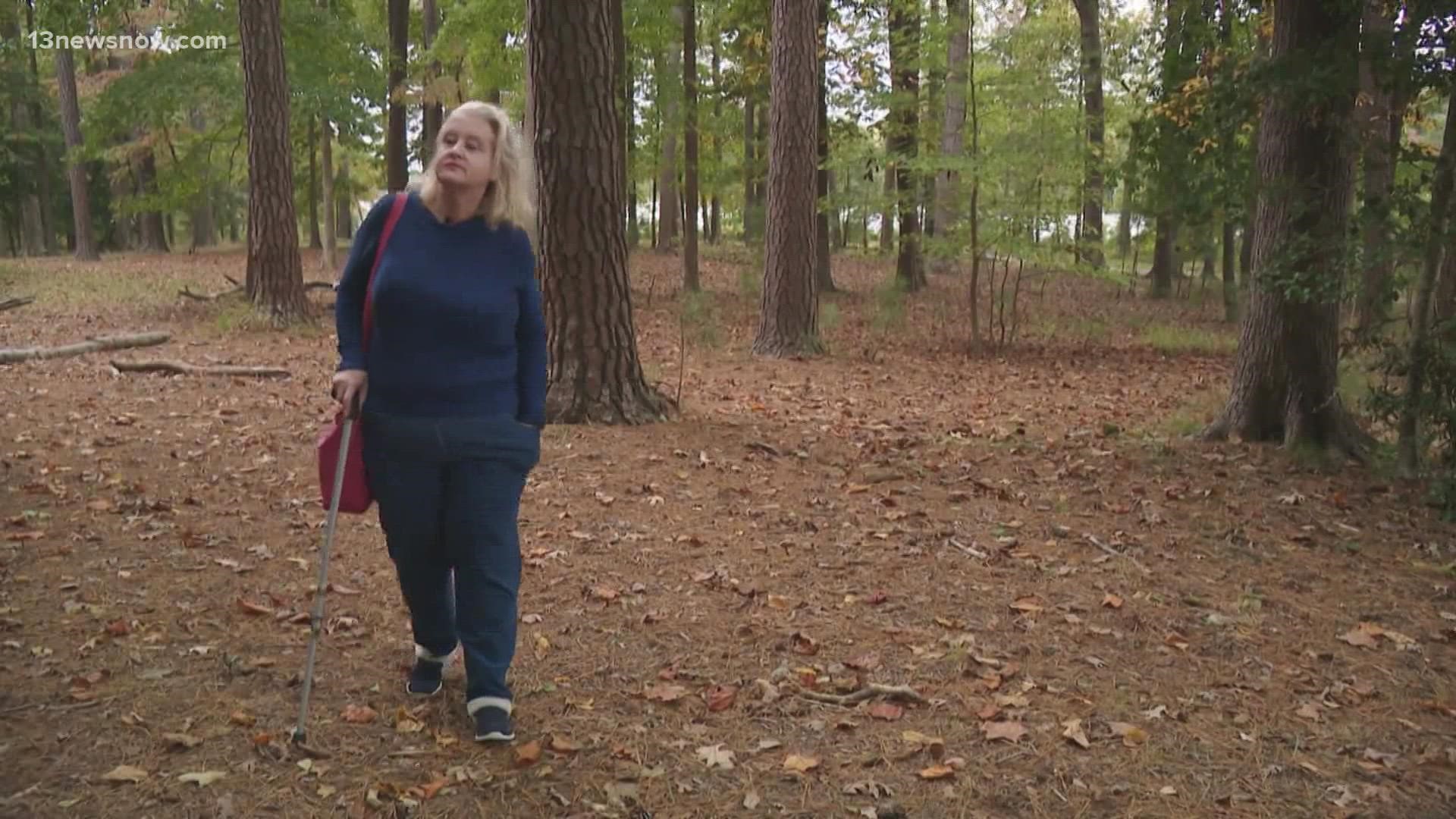NORFOLK, Va. — It's just after 6 p.m. and almost time for the evening weather forecast. Most people want to know if rain will cancel their weekend plans. But some people, like Eileen Fennell, want to know if they will be in pain.
While working as an EMT in Brooklyn, New York, Fennell was involved in a freak accident.
"I was in a head-on collision," she said. "I'm not going to say how many years ago, but quite a few years ago, the vehicle I was in was totaled. I was at work as an Emergency Medical Technician in New York City."
Fennel suffered multiple spinal injuries in the accident, and doctors told her she would never walk again.
"I spent five years in a wheelchair, and um, did a lot of physical therapy. I do walk, not very fast anymore -- or as long. But I'm better than they predicted I would be," she said.
Now, whenever the weather turns foul and the pressure drops, she's in pain.
"I can tell in the morning if the pressure is below 30 as soon as I wake up. I feel a dull ache in my hip, my shoulder. I'm feeling it now," Fennell told Evan Stewart in an interview on a cloudy October morning. "If it's a big storm, if we're going to get a nor'easter, if it's going to snow. Agony. Complete Agony."
There hasn't been a lot of research connecting weather to pain. Yet we all know someone who says they can feel it in their bones before the rain or snow rolls in.
Dr. Maria Guina, a neurologist with Tidewater Physicians Multispecialty Group in Williamsburg, said her patients see an increase in migraines when the pressure changes.
"My patients are the very accurate weather broadcasters in their circle of friends and family. Most often they can predict when there's going to be a storm," she commented. "Most of my patients note that when there are changes in barometric pressure as well as an increase in humidity that their headaches seem to act up."
Guina said this appears to be backed by increased emergency room visits during times of extreme pressure changes. But what little research there has been, has been mixed.
A study in the British Medical Journal in 2017 examined millions of reports of joint and back pain, and compared them to rainfall data from the National Oceanic and Atmospheric Administration. The study found no relation between rainfall and outpatient visits for joint- or back pain-related problems.
But, it acknowledges that an association may still exist, and larger, more detailed data would be useful to support this commonly held belief.
While science has not yet made a connection between weather and pain, millions of people like Fennell say they don't need science.
"It's accurate. And anyone who grew up with a grandmother who would tell you on a very clear, sunny morning the rain is coming and you would look at her like, "What." And by dinner time it was raining. We all know someone like that," she said. "And now I am someone like that."

